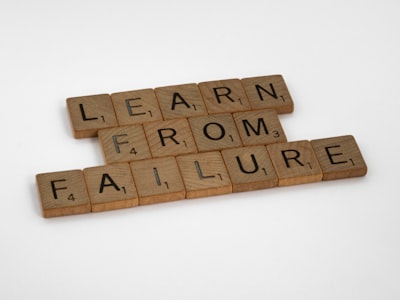
Learn how to streamline your contract management
Legal professionals have to manage multiple contracts at a time, making it a daunting task. A mistake made in contract management can lead to serious consequences and affect the organization’s reputation. Contract management is not just about managing a document; it is about ensuring that everything is compliant with laws, regulations, and company policies. In this blog post, we will discuss effective contract management tips for legal professionals to ensure that they stay organized, maintain compliance, and minimize risk. We will also explore the benefits of effective contract management for an organization’s success. Additionally, we will shed light on common mistakes in contract management and how best practices can help avoid them. Read on to learn more about how you can elevate your contract management game as a legal professional.
Understanding Contract Management
Contracts are essential legal documents that govern business relationships. Contract management involves efficiently handling the entire contract lifecycle, including creation, review, approval, and renewal. Legal professionals rely on effective contract management to ensure compliance, mitigate risks, and maintain organized and transparent processes. Understanding key stages and managing contract content is crucial for successful contract management.
Contract management encompasses the entire lifecycle of contracts, from initiation to renewal. It is crucial for legal professionals as it minimizes risks and maximizes opportunities. By automating processes and reducing manual errors, CLM solutions ensure efficiency. Legal professionals rely on contract management for compliance and governance. Additionally, analytics provided by CLM software help organizations make informed decisions.

How can Legal Professionals Effectively Manage Contracts?
Effective contract management is crucial for legal professionals. They need to stay organized, which involves maintaining a contract calendar to track deadlines. Ensuring compliance with contractual obligations is essential to protect their interests. Regular audits and reviews help identify areas for improvement and mitigate risks. Leveraging technology, like CLM software, increases productivity and accuracy.
1. Staying Organized
To stay organized in contract management, categorize contracts based on their nature and importance. Use appropriate naming conventions for easy identification. Create a systematic folder structure to store and retrieve contracts. Tag contracts with relevant keywords for quick search and retrieval. Implement proper version control to track changes and revisions.
3. Maintaining a Contract Calendar
To effectively manage contracts, it is crucial to maintain a contract calendar. This involves marking important contract dates like start and end dates, setting reminders for renewals or termination notices, including key milestones such as payment due dates and delivery schedules, and syncing the calendar with team members for collaboration. Automated alerts and notifications help stay updated on upcoming events.
4. Ensuring Compliance
To ensure compliance with regulatory standards, legal professionals should familiarize themselves with contract terms and obligations. Regularly reviewing contracts is key to ensuring adherence to legal requirements. Collaborating with stakeholders allows for the identification and resolution of any potential compliance issues. Documenting compliance activities demonstrates good governance practices.
5. Regular Audits and Reviews
To ensure the accuracy and relevance of contracting processes, it is crucial to conduct periodic audits of contract data and records. This allows for the identification of areas for improvement and the implementation of corrective actions based on audit findings. Engaging internal departments and external stakeholders in the review process enhances collaboration and facilitates continuous improvement.
6. Leveraging Technology for Efficiency
Leveraging technology for efficiency is crucial in contract management. By utilizing CLM software, such as Volody AI CLM software, legal professionals can streamline processes and automate tasks. Features like contract creation, review, and approval workflows help save time and ensure accuracy. Integration with existing systems like CRM or Microsoft Suite enhances productivity. OCR technology eliminates manual entry by extracting contract data. This not only improves efficiency but also reduces errors.

Benefits of Effective Contract Management for Organizations
Effective contract management offers numerous benefits to organizations. Reducing costs and improving financial outcomes, positively impacts the bottom line. Enhanced visibility into contract data facilitates better decision-making, while streamlined processes increase efficiency and productivity. Mitigating risks through compliance and governance safeguards the organization’s reputation. Furthermore, an improved contracting process supports stronger customer relationships.
1. Cost Savings
An efficient contracting process minimizes unnecessary expenses and penalties. Proactive renewal alerts prevent unwanted costs. Optimized procurement processes reduce maverick spending. Analyzing contract data uncovers cost-saving opportunities. An effective contracting process helps avoid legal disputes and associated expenses.
2. Risk Mitigation
Identifying and assessing potential risks in contracts is crucial for legal professionals. By leveraging analytics and CLM solutions, they can effectively manage risk scores and ensure compliance with contract terms. Implementing contract lifecycle management software provides better risk management and minimizes legal disputes. The use of contract data and visibility allows for effective risk mitigation.
3. Improved Relationships and Negotiations
Streamline stakeholder communication and collaboration, enhance vendor relationships with contract lifecycle management software, and ensure clear and concise contract terms to avoid misunderstandings. Utilize automated alerts and notifications for timely renewals, fostering transparency and trust through efficient contracting processes. Foster improved relationships and negotiations with streamlined and efficient management practices.
4. Enhanced Compliance and Governance
To ensure compliance with regulatory requirements, contract management solutions can be utilized. Implementing standardized contract templates helps in maintaining compliance. Contract repositories provide easy access to contract documents for monitoring and tracking contract deviations. Leverage contract analytics for insights into compliance performance.
Common Mistakes in Contract Management

Inadequate planning, neglecting regular reviews, non-compliance to contract terms, poor communication, and lack of automation are some of the common mistakes in contract management. Healthcare professionals, salesforce teams, and business owners in the United States should download contract insight to streamline their key stages and manage contract content effectively.
1. Inadequate Planning
To ensure effective contract management, it is crucial to create a well-defined process that covers everything from contract creation to renewal. Implementing CLM software streamlines planning and execution while allocating resources and assigning responsibilities ensures efficiency. Developing a timeline with realistic goals and establishing clear contract terms sets the foundation for successful contract management.
2. Neglecting Regular Reviews
Regular reviews play a crucial role in effective contract management. By conducting periodic reviews, legal professionals can identify any necessary updates or amendments to contracts. Utilizing CLM software automates the review process, ensuring efficiency and accuracy. It is important to involve all stakeholders in the review process to ensure comprehensive analysis. Regularly assessing contract terms, conditions, and performance helps in identifying areas for improvement and maintaining relevance and effectiveness.
3. Non-compliance to Contract Terms
To avoid non-compliance with contract terms, it is essential to implement CLM software. This software helps track and enforce contract obligations while establishing a system of alerts and notifications. Regular monitoring and collaboration among departments, along with the use of contract analytics, can help identify and correct any non-compliance issues.
4. Poor Communication
Establishing clear lines of communication among stakeholders involved in the contracting process is crucial. Using CLM software facilitates communication and collaboration, ensuring a common understanding of contract terms and obligations. Providing regular updates and status reports fosters transparency and prompt issue resolution. Open communication channels address concerns effectively.

Best Practices in Contract Management
Utilize contract lifecycle management software for streamlined processes. Standardize contract templates for consistency and efficiency. Implement automated workflows and notifications for improved efficiency. Foster collaboration and communication among stakeholders. Continuously evaluate and update management processes to adapt to changing needs.
1. Tracking renewals, obligations & expiries
To ensure progress and accountability, it is crucial to define clear and specific milestones for each contract. Utilize a CLM tool to track these milestones and deadlines, assigning responsibility to individual team members. Regularly review progress and adjust timelines as needed. Celebrating milestones achieved boosts team morale and motivation.
2. Reviewing and approving contracts
To ensure smooth contracting processes, set clear approval procedures and communicate them to stakeholders. Streamline the review and approval process by implementing a centralized CLM system. Assign roles and responsibilities to team members involved in the review process. Always review contracts critically, aligning them with organizational goals and best interests. Conduct regular audits for improvement and compliance.
3. Ensuring due diligence is conducted
Before signing or drafting a contract, it is crucial to thoroughly understand its terms. Additionally, it’s essential to keep track of important dates, deadlines, and renewal options. Effective communication with all parties involved in the contract is also key. Creating a clear process for contract review and approval helps ensure due diligence. Lastly, continuously assessing and evaluating the associated risks is necessary for successful contract management.
4. Clear communication increasing contract visibility
Transparency and communication are crucial in contract management. It is important to clearly define the terms and obligations of the contract and keep all parties informed about any changes or updates. Establishing a clear communication protocol ensures that questions or concerns can be addressed promptly. Additionally, keeping accurate records and regularly reviewing the contract’s effectiveness contributes to successful contract management.
5. Managing change and risk
To effectively manage change and risk in contract management, it is crucial to clearly define the scope, timeline, and deliverables of the contract before signing. Establishing a change management process helps handle unexpected modifications while conducting a risk assessment to identify potential risks for mitigation. Regular communication with stakeholders ensures everyone is on the same page, and maintaining accurate records throughout the contract’s lifecycle is essential.
Using CLM software for a streamlined contract lifecycle
As the importance of contract management became apparent, CLM software solutions emerged to address the challenges faced by businesses. These tools offer a comprehensive suite of features to handle the entire contract lifecycle, from creation and negotiation to execution and renewal. Volody’s AI CLM stands out as a leading player in this arena.

1. Cutting-edge AI Technology
At the heart of Volody’s AI CLM lies cutting-edge artificial intelligence (AI) technology that revolutionizes contract management. The software’s advanced algorithms possess an unmatched ability to analyze contract data with precision and sophistication. Unlike conventional CLM solutions, Volody’s AI CLM offers not just speed but also accuracy in contract analysis, significantly reducing the risk of errors that can be costly and time-consuming to rectify. With this technology, you can trust that your contracts are thoroughly reviewed, ensuring compliance and reducing potential disputes.
2. Streamlined Contract Approval Workflow
Efficiency is the cornerstone of Volody’s AI CLM. It takes the intricacies of contract management and simplifies them, making the entire process seamless and hassle-free. The software’s automation capabilities are nothing short of remarkable. Manual intervention is minimized, leading to faster contract approvals and enhanced collaboration among stakeholders. With Volody’s AI CLM, your team can focus on strategic decision-making rather than getting bogged down by administrative tasks.
3. Central Contract Repository
One of the standout features of Volody’s contract management software’s AI-powered central repository. Whether you’re a budding startup with limited contract management needs or a multinational corporation handling a vast array of contracts, this software can be tailored to match your requirements perfectly. It grows with your organization, ensuring that you have the right tools in place, no matter the size or complexity of your operations.
Read out how Volody’s AI CLM software managed 18,000+ contracts for a telecom giant through multiple locations.
4. Data Security
Protecting sensitive contract data is a paramount concern for businesses. Volody’s AI CLM recognizes this and employs robust security measures to safeguard your confidential information. Advanced encryption protocols and stringent access controls are in place to guarantee the confidentiality and integrity of your contracts. With Volody’s AI CLM, you can trust that your data is in safe hands, and compliant with the highest security standards.
5. Integration Capabilities
Efficient contract management often necessitates integration with other critical business systems, such as Customer Relationship Management (CRM) and Enterprise Resource Planning (ERP). Volody’s AI CLM recognizes the importance of seamless integration and offers comprehensive solutions to ensure that your contract management aligns seamlessly with your overall business operations. This integration capability provides you with a holistic view of your organization, streamlining decision-making and enhancing efficiency.
In essence, Volody’s AI CLM isn’t just a contract management solution; it’s a strategic asset that empowers your organization to navigate the complex landscape of contracts with confidence and ease. Its advanced AI technology, streamlined workflow, scalability, data security, and integration capabilities make it the ultimate choice for businesses aiming to enhance contract management efficiency.
Frequently Asked Questions
How can effective contract management help mitigate legal risks for businesses?
Effective contract management plays a crucial role in mitigating legal risks for businesses. It helps identify and address potential risks before they become problematic, ensures obligations are fulfilled, reduces the likelihood of disputes and litigation, and ensures compliance with laws and regulations.
How can technology be used to streamline the contract management process?
Technology plays a crucial role in streamlining the contract management process. With CLM software, tasks like contract creation and approval workflows can be automated. Electronic signatures eliminate the need for physical signatures, saving time and resources. Artificial intelligence helps analyze contracts for potential risks and inconsistencies. Cloud-based storage allows easy access to contracts and collaboration among team members.
Can outsourcing contract management be a cost-effective option?
Outsourcing the contracting process can be a cost-effective choice for legal professionals. By reducing workload and freeing up time, it allows them to focus on more important tasks. Partnering with a specialized firm brings expertise and knowledge. However, careful evaluation of costs and benefits is crucial before deciding to outsource.
How can a legal professional effectively communicate contract terms to clients or stakeholders?
To effectively communicate contract terms, legal professionals should use clear language, schedule meetings to discuss the contract, provide real-world examples, and be open to negotiation while ensuring legal requirements are met.
What tools or software can be helpful for managing contracts efficiently?
To efficiently manage contracts, there are several helpful tools and software available. Streamline the process with contract management tools like Agiloft, ContractSafe, and Concord. Obtain electronic signatures easily using e-signature software like DocuSign or Adobe Sign. Keep track of deadlines and tasks related to contracts with project management software like Asana or Trello. Organize and store contract-related documents using document management systems like SharePoint or Google Drive.
How does Effective Contract Management Contribute to an Organization’s Success?
Effective contract management plays a crucial role in an organization’s success by streamlining procurement processes, improving vendor relationships, minimizing legal risks, enhancing compliance, and increasing operational efficiency. It also provides better visibility into contract data for informed decision-making.
Conclusion
Effective contract management is crucial for legal professionals to ensure smooth operations and mitigate risks for organizations. By staying organized, maintaining a contract calendar, ensuring compliance, conducting regular audits, and leveraging technology, legal professionals can effectively manage contracts and provide numerous benefits to organizations. These benefits include cost savings, risk mitigation, improved relationships and negotiations, and enhanced compliance and governance.
However, it is important to be aware of common mistakes in contract management, such as inadequate planning, neglecting regular reviews, non-compliance to contract terms, and poor communication. By following best practices like establishing and tracking milestones, reviewing and approving contracts, conducting due diligence, fostering transparency and communication, and managing change and risk, legal professionals can contribute significantly to an organization’s success.
If you want to dive deeper into contract management, check out our blog on what is contract law for more insights and tips.
Leave a Review